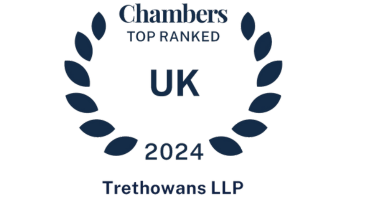If you plan to challenge the validity of a will, then entering a Caveat to prevent probate from being granted could be your first step. Our contentious probate solicitors are here to guide you through the process.
What is a Caveat?
A Caveat can be entered at the Probate Registry to prevent a Grant of Probate or Letters of Administration being issued. A caveat is effective for six months, but they can be extended on an ongoing basis.
To enter a Caveat, you will need to complete an application form for the Probate Registry. This can be done online for a fee of £3.00.
In what circumstances is a Caveat appropriate?
A Caveat may be appropriate in the following circumstances:
- where there are doubts about the validity of a Will;
- where there is a dispute about who should be a personal representative; and
- where a citation is is to be taken out.
It is not appropriate, however, to lodge a caveat where a person intends to pursue a claim under the Inheritance (Provision for Family & Dependants) Act 1975.
Can a Caveat be removed?
The individual who registered the Caveat, or the caveator, can remove the Caveat at any time. Alternatively, if the executor of the will feels that the Caveat is unjustified, they can seek to have it removed by lodging a ‘warning’ with the Probate Registry.
Once the ‘warning’ has been duly served, the caveator has 14 days to ‘enter an appearance’ giving particulars of any contrary interest in the estate. If the caveator does not have a contrary interest to the person warning but wishes to show cause against the sealing of a grant to that person, they should issue a summons for directions.
Once an appearance has been entered, the caveat becomes permanent and can only be removed by an order of the court or District Probate Registrar.
Why choose Trethowans?
If you require assistance in connection with entering, removing or responding to a Caveat, our team of contentious probate solicitors can help. We have years of experience helping clients to resolve their disputes in a non-confrontational way. However, we can also support you through the court process if necessary. Contact us today on 0800 2800 421.






